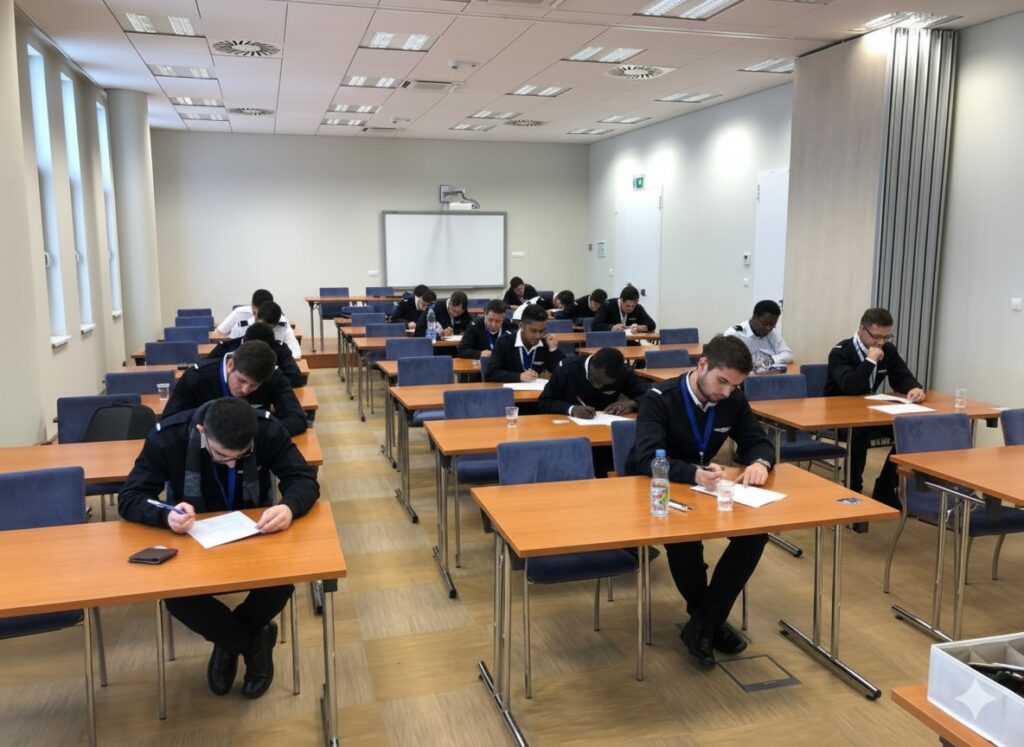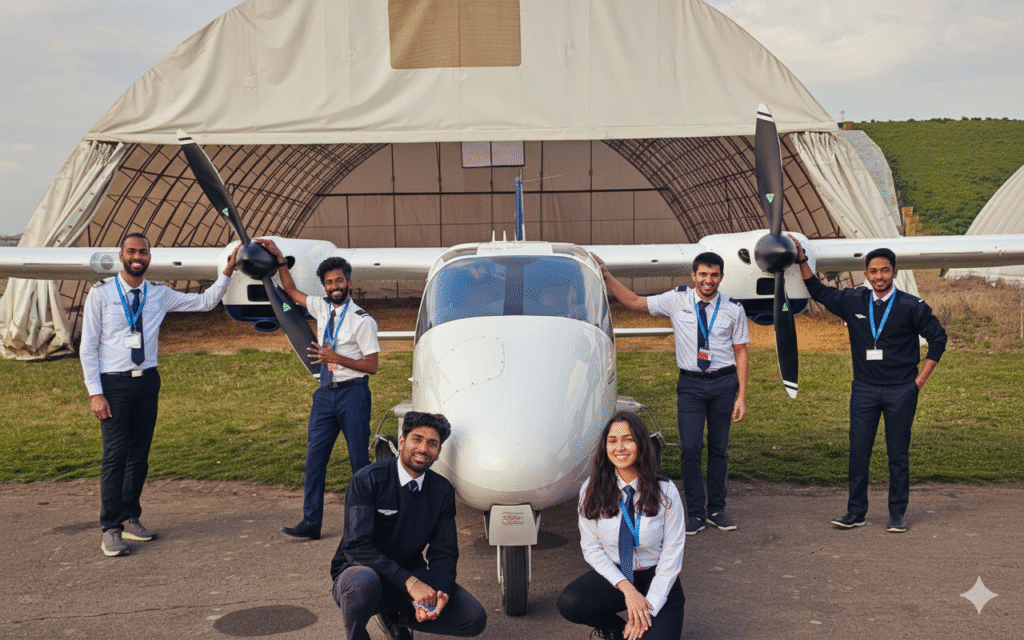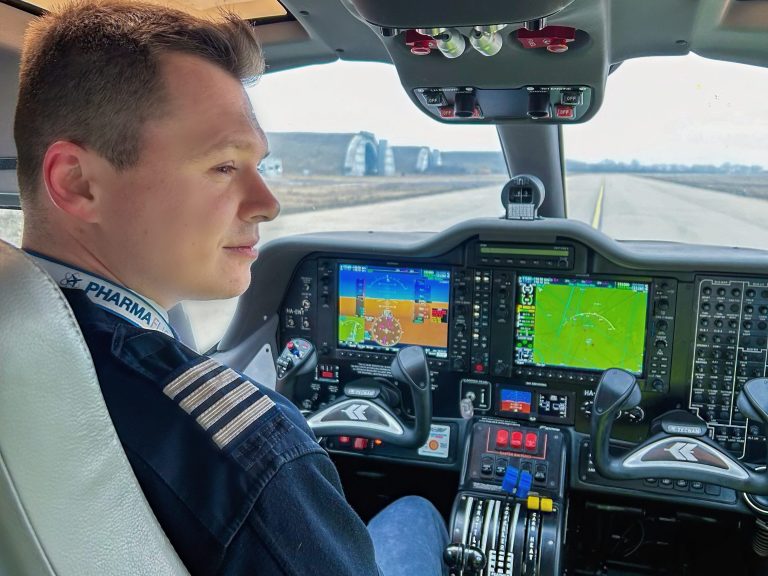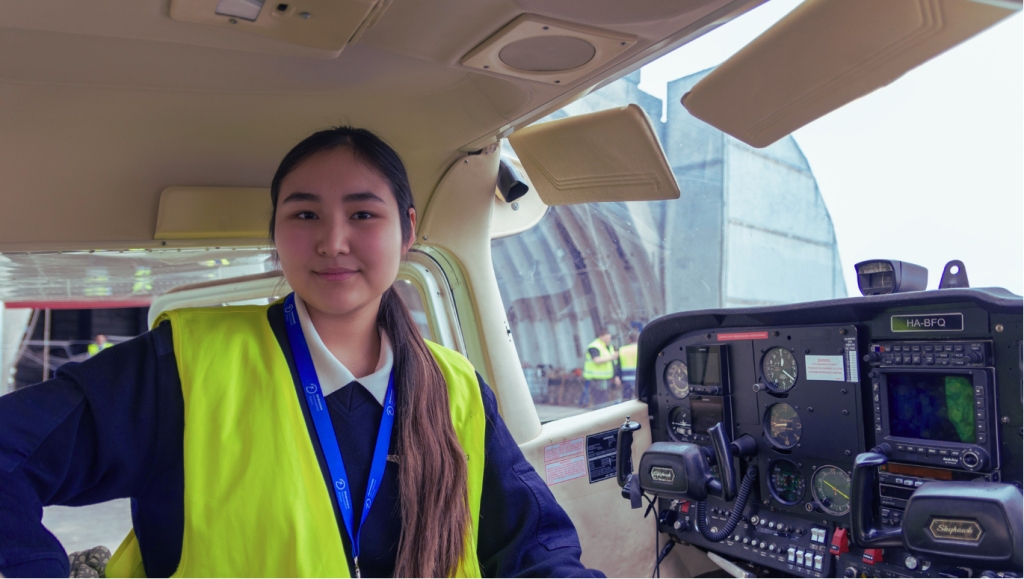In a groundbreaking move that’s reshaping international pilot education, Pharma Flight, Hungary’s premier aviation training organisation, has launched an innovative program that delivers comprehensive theoretical ground instruction exclusively in India. This strategic initiative offers aspiring pilots access to world-class European aviation education standards while significantly reducing training costs and geographic barriers.
The India Initiative: 850 Hours of Theoretical Excellence
Pharma Flight’s Flight Center, which provides world-class education and training to pilots seeking professional excellence in their careers, has developed this comprehensive program specifically for the Indian market. The program delivers an intensive 850-hour theoretical ground instruction course that covers all essential ATPL (Airline Transport Pilot License) theoretical knowledge requirements.
This substantial theoretical foundation ensures that students receive thorough preparation in all critical areas including:
- Aviation Law and Regulations: Comprehensive coverage of EASA regulations and international aviation law
- Aircraft General Knowledge: Detailed understanding of aircraft systems, powerplants, and instrumentation
- Flight Performance and Planning: Advanced calculations for weight, balance, and performance optimization
- Human Performance and Limitations: Critical knowledge of aviation psychology and physiological factors
- Meteorology: In-depth weather theory essential for professional flight operations
- Navigation: Modern navigation techniques including GPS, INS, and traditional methods
- Operational Procedures: Standard operating procedures and emergency protocols
- Principles of Flight: Advanced aerodynamics and flight theory
- Radio Navigation: Comprehensive understanding of navigation aids and procedures

Phased Flying Syllabus: From Foundation to Professional Competency
While the theoretical instruction takes place in India, Pharma Flight’s practical training follows a carefully structured phase-by-phase approach that maximizes learning efficiency and safety.
Phase 1: Foundation Training
The initial phase focuses on basic flying skills, including:
- Primary flight training on single-engine aircraft
- Visual flight rules (VFR) operations
- Basic instrument procedures
- Local area familiarization and airport operations
Phase 2: Intermediate Development
This phase expands operational capabilities through:
- Cross-country navigation training
- Advanced VFR operations in various weather conditions
- Introduction to complex aircraft systems
- Communication procedures with air traffic control
Phase 3: Advanced Flight Training
The advanced phase prepares students for commercial operations:
- Multi-engine aircraft operations
- Instrument flight rules (IFR) procedures
- Commercial pilot license skill requirements
- Advanced emergency procedures and decision-making
Phase 4: Professional Preparation
The final phase focuses on airline-standard operations:
- Jet orientation and turbine engine operations
- Advanced weather flying techniques
- Crew resource management principles
- Line-oriented flight training scenarios

Advanced UPRT: Critical Safety Enhancement
One of the most significant aspects of Pharma Flight’s program is the inclusion of Advanced Upset Prevention and Recovery Training (UPRT). This specialized training addresses one of aviation’s most critical safety challenges – loss of control in flight, which remains a leading cause of aviation accidents.
The Advanced UPRT program includes:
Theoretical Components:
- Aerodynamic theory behind upset conditions
- Recognition of developing upset situations
- Energy management during recovery procedures
- Human factors in upset scenarios
Practical Training:
- Controlled upset scenarios in appropriate aircraft
- Recovery technique development and practice
- Simulator-based upset training
- Real-world application of prevention strategies
This comprehensive approach ensures that graduates are not only technically proficient but also equipped with the critical thinking and reaction skills necessary for safe professional flight operations.
Multi-Crew Cooperation (MCC): Airline-Ready Training
The program culminates with comprehensive Multi-Crew Cooperation (MCC) training, designed to prepare pilots for modern airline operations where effective teamwork is paramount.
MCC Training Elements:
Communication and Coordination:
- Standard phraseology and crew communication protocols
- Effective briefing techniques and information sharing
- Conflict resolution and decision-making processes
Crew Resource Management:
- Leadership and followership roles in the cockpit
- Situational awareness and threat management
- Workload distribution and task management
Operational Procedures:
- Standard Operating Procedures (SOPs) implementation
- Normal and non-normal procedure execution
- Emergency response coordination
Simulator-Based Training:
- Multi-crew scenarios in jet aircraft simulators
- Line-oriented flight training (LOFT) exercises
- Competency-based assessment and evaluation

The Hungarian Advantage
Pharma Flight currently provides one of the most modern training facilities and educational experiences available not only in Hungary but around the globe. Hungary has emerged as a leading destination for pilot training due to several key advantages:
- EASA Certification: Full European Aviation Safety Agency approval ensures international recognition
- Cost Effectiveness: Significantly lower training costs compared to Western European alternatives
- Modern Facilities: State-of-the-art equipment and training aircraft
- Experienced Instructors: Highly qualified instructors with extensive commercial aviation experience
- English Language Training: All instruction conducted in English, the international language of aviation
Strategic Benefits for Indian Students
This innovative approach offers several compelling advantages for aspiring pilots in India:
Financial Benefits:
- Reduced accommodation and living expenses by completing theory in India
- Lower overall program costs compared to full European training
- Flexible payment structures and financing options
Educational Quality:
- European training standards and certification
- Access to advanced training methodologies
- International recognition of qualifications
Cultural Adaptation:
- Gradual transition to European training environment
- Strong theoretical foundation before practical training
- Support network for Indian students
Career Prospects and Industry Recognition
Graduates of Pharma Flight’s comprehensive program are well-positioned for careers with:
- European airlines requiring EASA licensing
- International carriers seeking well-trained pilots
- Corporate aviation operations
- Flight training organizations as instructors
The combination of thorough theoretical preparation, advanced practical training, and specialized courses like UPRT and MCC creates pilots who meet the highest international standards for safety and professionalism.

Looking Forward: The Future of International Pilot Training
Pharma Flight’s India initiative represents a significant evolution in international pilot training. By combining the accessibility of local theoretical instruction with world-class practical training, this program addresses many of the traditional barriers to professional pilot education.
As the aviation industry continues to face pilot shortages globally, innovative training solutions like this program will become increasingly important. The success of this initiative could pave the way for similar international partnerships, making quality pilot training more accessible to aspiring aviators worldwide.
For students considering this program, the combination of comprehensive theoretical preparation, structured practical training phases, and advanced specialized courses offers a clear pathway to a successful aviation career. The emphasis on safety through Advanced UPRT and professional readiness through MCC training ensures that graduates are not just licensed pilots, but truly prepared aviation professionals.
The future of pilot training lies in such innovative approaches that combine international standards with local accessibility, and Pharma Flight’s India program stands as a pioneering example of this evolution in aviation education.